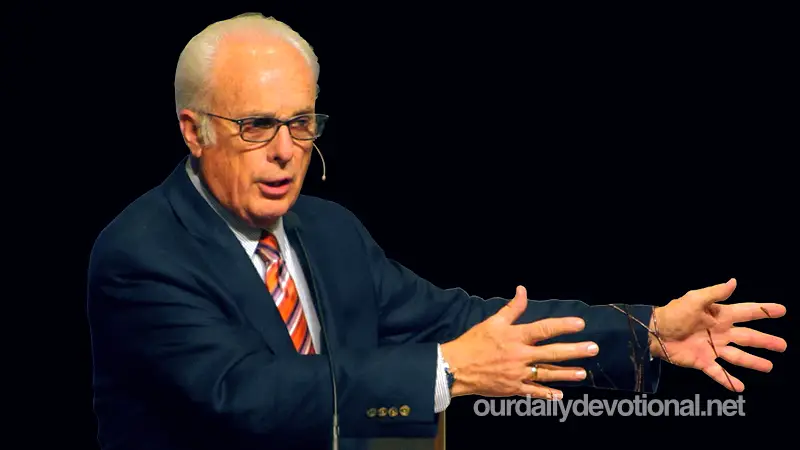In his prophecies the spiritual life of the author appears. By announcing the destruction of his homeland, he attracted the hatred of his countrymen. The burden of his message made him utter bitter lamentations, and the same wish that he had never been born (Jer. 15:10; 20: 14-18).
But the prophet did not give up on his mission. He found himself alone, misunderstood, defamed, persecuted. His efforts for the public good were thwarted from the beginning. Jeremiah had no family life or friends (Jer. 16:1-9); Frequently detained, he had no other comfort than that of the Lord.
Forced to take refuge in God, Jeremiah understood individual responsibility (Jer. 17:9; 31:29, 30). This prophet shows us in a remarkable way how man can have a deep communion with God.
Jeremiah's preaching unmasked the hypocrisy that was nested in the religious system, exhorting righteousness and integrity. The call to prophetic ministry came five years before the book of the Law was discovered during repairs to the Temple.
King Josiah, deeply affected by the message of the book, launched a campaign against idolatry, restoring the national cult, with which the first part of Jeremiah's mission achieved its objective. The prophet exhorted the people to heed the words of the covenant made at Sinai.
He showed how God had brought upon the people, because of their disobedience, the same evils that were prophesied in the Law. Jeremiah affirms that obedience is the first condition of the covenant (Jer. 11: 1-8). He told the Israelites not to be satisfied with external standards, but to set their hearts at ease.
Jeremiah speaks in the line of the ancient prophets, citing well-known proverbs, and is based on the covenant concluded between God and Israel (1 Sam. 15:22; Is. 1:11-17; Am. 5:21-24; Mi. 6:6-8; Prov. 15:8). Through denial, a rhetorical device frequently used to highlight an antithesis (cf. Deut. 5:3), he affirms that it is not sacrifices that God demands first, but obedience.
Evidently, the Lord had ordered the sacrifices (Ex. 20:24; 23:14-19; Deut. 12:6); but what matters is that there is moral integrity with them (Jer. 7:21-28; cf. 6:20; 14:12). The sacrifices of the obedient please God (Jer. 17:24-26; 33:10, 11, 18); but He refuses fasts and burnt offerings from those who wander far from Him (Jer. 14:10-12).
Being content with believing in the presence of Jehovah in the Temple, in the midst of Israel, is of no use; The boast of possessing the Law of God, without putting it into practice, is equally illusory. The Lord only considers obedience (Jer. 7:4-7; 8:7-9). Finally, there will be no more talk of the ark of the covenant (Jer. 3:16).
God contemplates the heart of man (Jer. 11:20; 17:10; 20:12). The service of God requires that one purify one's heart from all evil desire (Jer. 4:4; cf. Deut. 16:10), from evil (Jer. 4:14); May he turn wholeheartedly to Jehovah, without reservation or hypocrisy of any kind (Jer. 3:10; 17:5).
Jeremiah predicts that one day Israel will receive a new heart, where God's Law will be written (Jer. 24:7; 31:33; 32:39, 40). The prophet described the glory of the coming Kingdom; Since then this truth has had one of the first places in the thoughts of the people of God.
Jeremiah dictated some of his prophecies under Jehoiakim's reign, but the king destroyed the scroll (Jer. 36:1, 23); They were immediately rewritten, with important additions (Jer. 36:32). The book we currently have is even more extensive, since it also contains the latest prophecies.
It is a wording that Jeremiah himself made at the end of his ministry; He gathered texts that belonged to different periods, and separated others that are from the same period. As you can see, the plan in writing his book is not chronological, but moral.
(a) PLAN.
The book of Jeremiah contains an introduction recounting how the young man was called to the ministry (Jer. 1); Then come three prophetic sections, often in relation to the event that provokes the message (Jer. 2-51).
It concludes with a historical appendix, which was probably added by a later scribe, perhaps Baruch (Jer. 52; cf. Jer. 51:64). The three prophetic sections include:
(A) Predictions concerning the imminent judgment of the kingdom of Judah, and the promise of gathering after the exile (Jer. 2-33). In this section there is a denunciation against Judah (Jer. 2-20), accusations against the civil and religious authorities (Jer. 21-23), the revelation of the object and harshness of the punishment (Jer. 24-29; cf. Jer. 25:11; Dan. 9:2) and the announcement of the blessings that will follow (Jer. 40-44)
(B) The story of punishment (Jer. 34-44) The prophet denounces the corruption that reigned shortly before the fall of Jerusalem (Jer. 34-38). He recounts the taking of Jerusalem and its destruction (Jer. 39), the sorry state in which the survivors were left, and the prophecies that were addressed to them (Jer. 40-44).
(C) Predictions concerning foreign nations (Jer. 46-51); These prophecies are preceded by a message to Baruch (Jer. 45).
Messianic passages appear in Jer. 23:5-8; 30:4-11; 33:14-26; Jehovah's irrevocable covenant with Israel is mentioned in Jer. 31:31-40; 32:36-44; 33. Matthew (Mt. 2:17-18) reveals that Jer. 31:15 also applies to the slaughter of the innocent.
In his song, Zechariah alludes to a word of the prophet (Luke 1:69; Jer. 23:5). The announcement of a new covenant (Jer. 31:31-34) constitutes the theme of Heb. 8:8-13; 10:15-17 (cf. Luke 22:20). In cleansing the Temple, Jesus quotes Jeremiah (Jer. 7:9-11; Mark 11:17).
The book of Revelation is clearly inspired by Jeremiah, especially regarding the fall of Babylon (Jer. 17:10, cf. Rev. 2:23; Jer. 25:10, cf. Rev. 18:22-23; Jer. 51:7-9, 45, 63-64, cf. Rev. 14:8; 17:2-4; 18:2-5, 21).
The authenticity of this work has never been seriously doubted. In the LXX, the order of the chapters. It's a little different; in particular, chaps. 46 - 51 are found among vv. 13 and 14 of chapter. 25, and several omissions are evident (undoubtedly due to the translator's tendency towards brevity).
(b) Archaeological confirmation.
In Tafnes, prof. Petrie discovered the ruins of Pharaoh's house (Jer. 43:9-10). This had a single entrance, and in front of it a large tiled area expanded, corresponding exactly to Jeremiah's description.
In 1935 and 1938 the "letters of Lachish" were discovered, written on clay tiles (ostraka). Scholars agree in dating these fragments (about 90 lines in Hebrew) to the end of Zedekiah's reign.
This is a prophet whose name ends in "iah", and has been deciphered as follows: "the words of the prophet are not good... they can weaken the hands of..." (cf. Jer. 38:4). Even if Jeremiah's name does not appear, these letters clearly reflect the circumstances of his time and his book.
Meaning of JEREMIAH (Book)
In his prophecies the spiritual life of the author appears. By announcing the destruction of his homeland, he attracted the hatred of his countrymen. The burden of his message made him utter bitter lamentations, and the same wish that he had never been born (Jer. 15:10; 20: 14-18).







